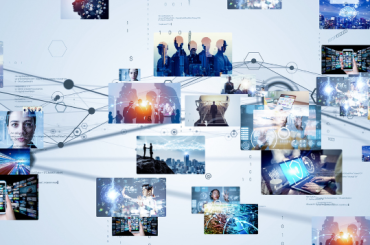- Keeping Lunch Boxes Healthy - September 14, 2023
- Chat GPT: The Future of Business Communication is Here! - February 16, 2023
- What are Cognitive Enhancers or Nootropic Supplements and How do They Work? - November 10, 2022
All through the Covid pandemic, we have been wearing masks. We’ve become used to them. The masks protect us from the world, but they also hide us from the world.
And now, we are taking off the visible masks, but the less visible interior masks remain.
These interior masks we wear have grown on us from our earliest childhood all the way through our lives. They filter what we allow the rest of the world to see of us. They are a barrier between who we really are and how the rest of the world perceives us.
To hide what is within
Our masks make sure that others don’t see what we are really, truly feeling; what is really going on inside us. We may be shielding some emotional and psychological vulnerability. There may have been a painful episode in our lives of which we are not particularly proud. We may hide wounds from careless words tossed at us by uncaring people and they have stuck and festered. We want to shield ourselves from the gaze of others into this secret place.
We use our masks to present a façade of happy indifference. We might have a physical disability, or we might be uncomfortable with our physical appearance and so we take on a mask that deflects attention away from what we are fearing.
To project who we are not
We wear masks to project an image different from the true me within. We may want to appear strong and in control. Perhaps we don a mask that allows us to manipulate others into following our way. This generates stress because we have to work so hard on creating, maintaining and sealing off these masks so that no one can see through to the real person behind them. In effect, over time, we become the mask. We become the person whom we are not. The mask filters and impedes the impact of the real me on the world. The real world cannot experience and get to know the authentic me. My strengths, my contribution, and my me-ness are kept from the world.
in this way, we become a fake person. We’re not the real me standing in front of the crowd. We are playing a role where we want to appear as someone whom we are not and the audience, our friends and family or colleagues, are responding to that alien person and not to the real me.
This is why we need we need to work on a process of self-alignment so that we peel off the masks that stand between us and the world; the masks that hide what we don’t want others to see; the masks that we wish to project into the world.
Because, in the end, the real me is valuable to the world. We have a contribution to make and if we don’t authentically be ourselves, we cannot fulfil that role in the world. And we will continue to play the part of someone else and not be our real selves. And this is a terrible waste.
How can we understand this?
Let’s create a framework for understanding our masks and what we can do about them. The Johari window is a very old concept, it’s almost 70 years old. It was designed to help people better understand the relationship between themselves and others. It was created by psychologists Joseph Luft and Harrington Ingham. They named their model “Johari” using a combination of their first names.
The Johari window looks like this:
A diagram of the Johari window is given shown above. It’s split into four quadrants. Along the horizontal axis, we have a continuum stretching from what is known to me on the left over to the things that I don’t know about myself on the right.
The vertical axis stretches from what of me is known to others over to what is not known to others.
- Quadrant A represents what you know about yourself and what others know about you. This is known as the Arena, a public space for all to see. This is who you are and who the world knows.
- Quadrant B represents what you know about yourself, and what is not known to others. This is called the Façade. The masks we wear rest on the interface between the façade and the arena. This is the part of you that you don’t want the rest of the world to know about. And you take steps to protect yourself from that. Hence the mask.
- Quadrant C represents what is unknown to yourself but is known to others. This is called the Blind Spot. We may not be aware of our impact on others. We may not understand how people perceive us. Examples are frequently using a phrase such as “you know.” It might be a nervous tick. Your body language may change when you are in certain situations and you are totally unaware of this but everyone else is aware. The poker player is unaware of the “tell’ but the other players see it immediately. [In poker a “tell” is something that a person does to unknowingly indicate the strength of their hand or what one of their future actions might be.]
- Quadrant D is the Unknown. It is the area which is unknown to you and unknown to other people. This is the area of personal growth, the area of opportunity. This is where you can become a more integrated, authentic human being.
What can we do?
The Johari window gives us a practical framework. The opportunity for our personal growth lies in expanding the area of the Arena.
- And this in turn means getting to know more about ourselves by decreasing the size of the Blind Spot – what we don’t know about ourselves.
- And by decreasing the size of the Façade, the place where we wear our masks. And To do that we must shed our masks and let more of ourselves be known to the world.
- And when we work on both of them, we decrease the size of the Unknown!
How can we expand the Arena, decrease the size of the Façade [B], and remove the masks we hide behind?
You can expand your Johari window – the Arena, your public space – by way of self-disclosure. Share more of who you are as a human being. Share anecdotes about your past, and the events and decisions that made you who you are. You should be circumspect in what you share and with whom you share it. Sharing your personal history is a powerful mechanism to draw people to the real you – they get to understand the authentic you. And this in turn promotes trust and enhances the perception of your personal integrity.
When it comes to increasing the arena by working on the Blind Spot [C], you should consider asking for feedback. Ask questions of friends, relations and colleagues whom you know well, who know you, and who will give honest feedback. How do I react in these circumstances? What is the overall impression I create? What do people think of me? Am I unaware of peculiar habits or behaviors?
By increasing the size of your Arena, more is known about yourself, and you speak to others to tell you about it. You don’t need the masks anymore. The walls between you and others come down. As you grow to understand your impact on others and as you learn more about yourself, you embark on a process of self-alignment and peel off the masks that stand between you and the world; the masks that hide what you don’t want others to see; the masks that you wish to project into the world.
Taking off the mask
The process of taking off the mask, the many masks, we wear is not an easy one. It’s tough, it’s hard. We have to expose vulnerable aspects of ourselves that we’d rather not talk about. But in the interests of self-growth, of growing as an integrated person, opening the Johari window is a very powerful self-improvement process. The first step in taking off the masks is to prepare yourself to realise this is going to take emotional courage. It’s going to take perseverance. You must be courageous in sharing who you are with other people and in asking for feedback, even if you might not like the feedback you get. There’s only one real you, and you’d better be comfortable with the new you. The true you, the real you. You are unique and wonderful, and that is you.
The power of taking off the mask is that it allows you to love yourself. Accept that you are a fully competent human being. You have everything you need to be successful. You have nothing to fear from the world. Through a thoughtful process of self-discovery and sharing, you can become an even more authentic competent human being
The world needs more people like you


